Reports
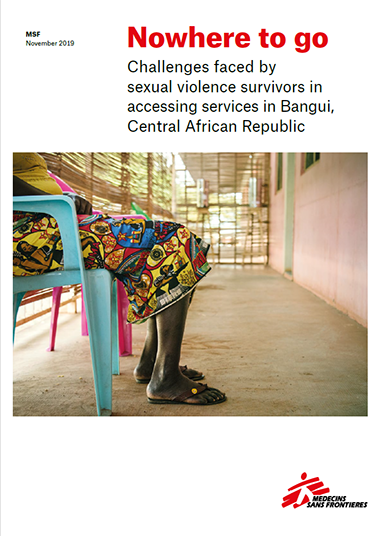
Nowhere to go
Sexual violence (SV) has garnered a lot of attention at international fora in recent months, with millions of dollars in donor funding pledged towards ending this “epidemic”, particularly in areas of armed conflict. However, survivors of SV in CAR aren’t feeling the impact of this momentum due to services often being absent or dysfunctional.
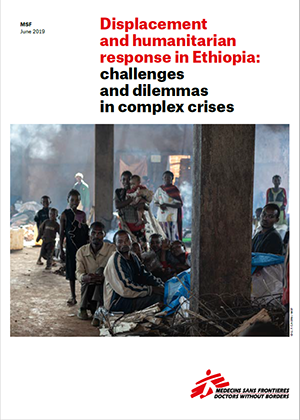
Displacement and humanitarian response in Ethiopia: challenges and dilemmas in complex crises
Since the end of 2017 the number of people internally displaced by violence in Ethiopia has risen significantly. As a result, the humanitarian community — including MSF — has suddenly found itself needing to adapt and scale up its response to meet the acute needs in conflict-driven crises.
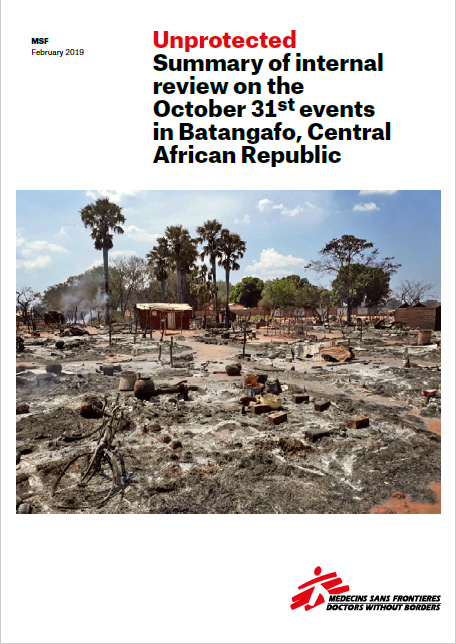
Central African Republic: Unprotected
Summary of internal review on the October 31st events in Batangafo, Central African Republic
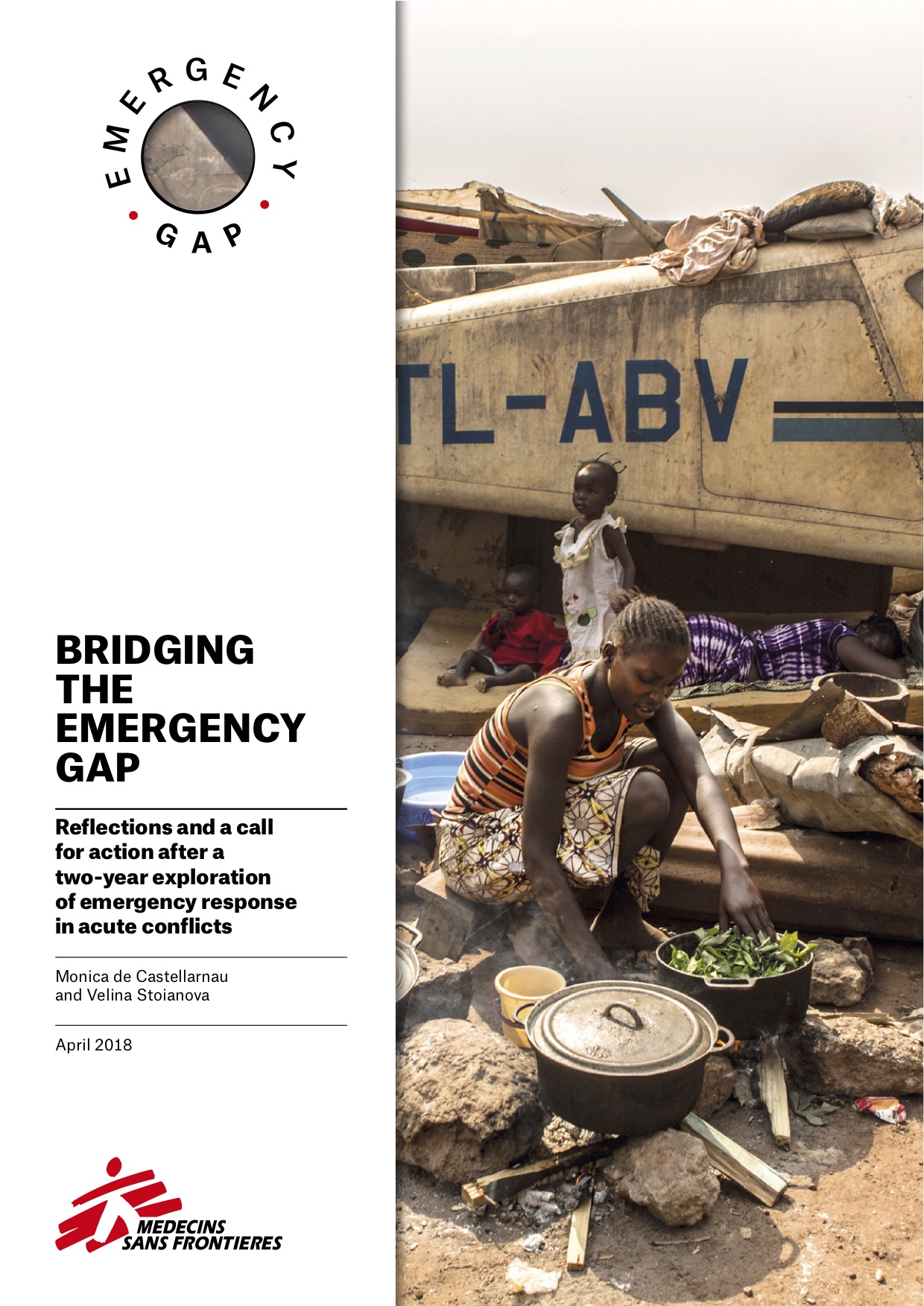
Emergency Gap final report: Bridging the emergency gap
There is general consensus that the humanitarian sector is failing to mount timely and adequate responses in the acute phase of conflict-related emergencies, according to the two-year Emergency Gap Project by Médecins Sans Frontières (MSF).
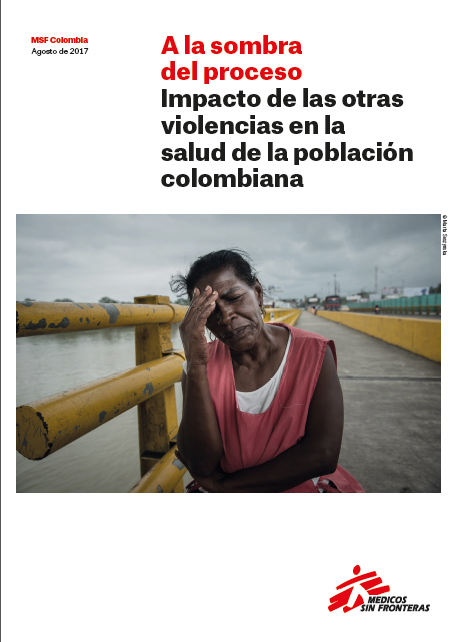
Colombia: in the shadow of the peace process
The report highlights the impact of violence on the health of populations in the municipalities of Buenaventura and Tumaco, where the medical organization Médecins Sans Frontières (MSF) provides health services to populations who are victims of violence.
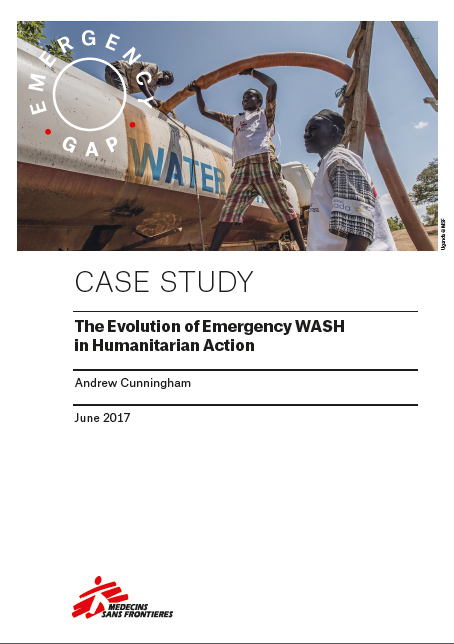
The Evolution of Emergency WASH in Humanitarian Action
An emergency WASH gap exists – there is little disagreement on this point within the humanitarian sector. There is a paucity of emergency WASH capacity, but a surplus of complacency. This report provides an overview of both historical trends and current challenges in emergency WASH programming. Some ways forward are suggested and can be summarised as three key take-home points.
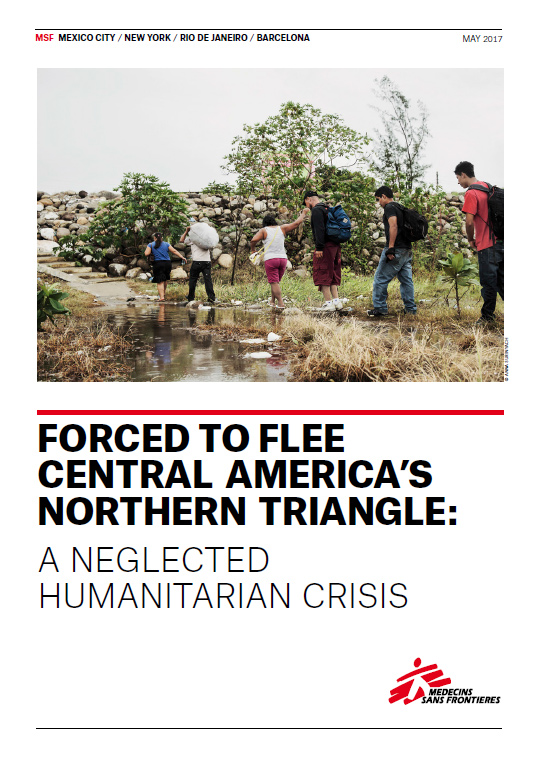
Forced to Flee Central America’s Northern Triangle
Approximately 500,000 people from the Northern Triangle of Central America (NTCA) cross into Mexico every year, fleeing violence and poverty. MSF, as a medical humanitarian organization, and through its medical programs, is witness to the reasons that have caused these people to flee from home.
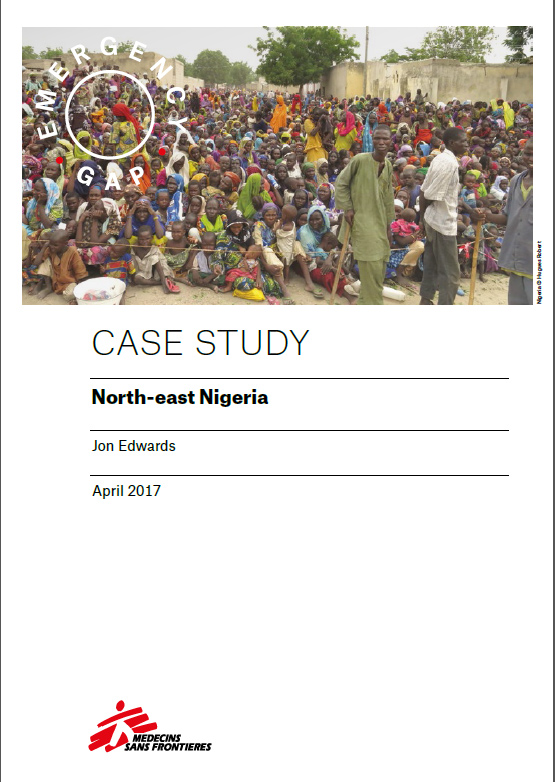
North-east Nigeria
This case study examines the humanitarian response to the conflict-related crisis in the North-East of Nigeria, focusing primarily on the period from 2015 to the end of 2016. The aim is test the central hypotheses of the Emergency Gap project: that the current structure, conceptual underpinning and prevalent mindset of the international humanitarian system limits its capacity to be effective in response to conflict-related emergencies.
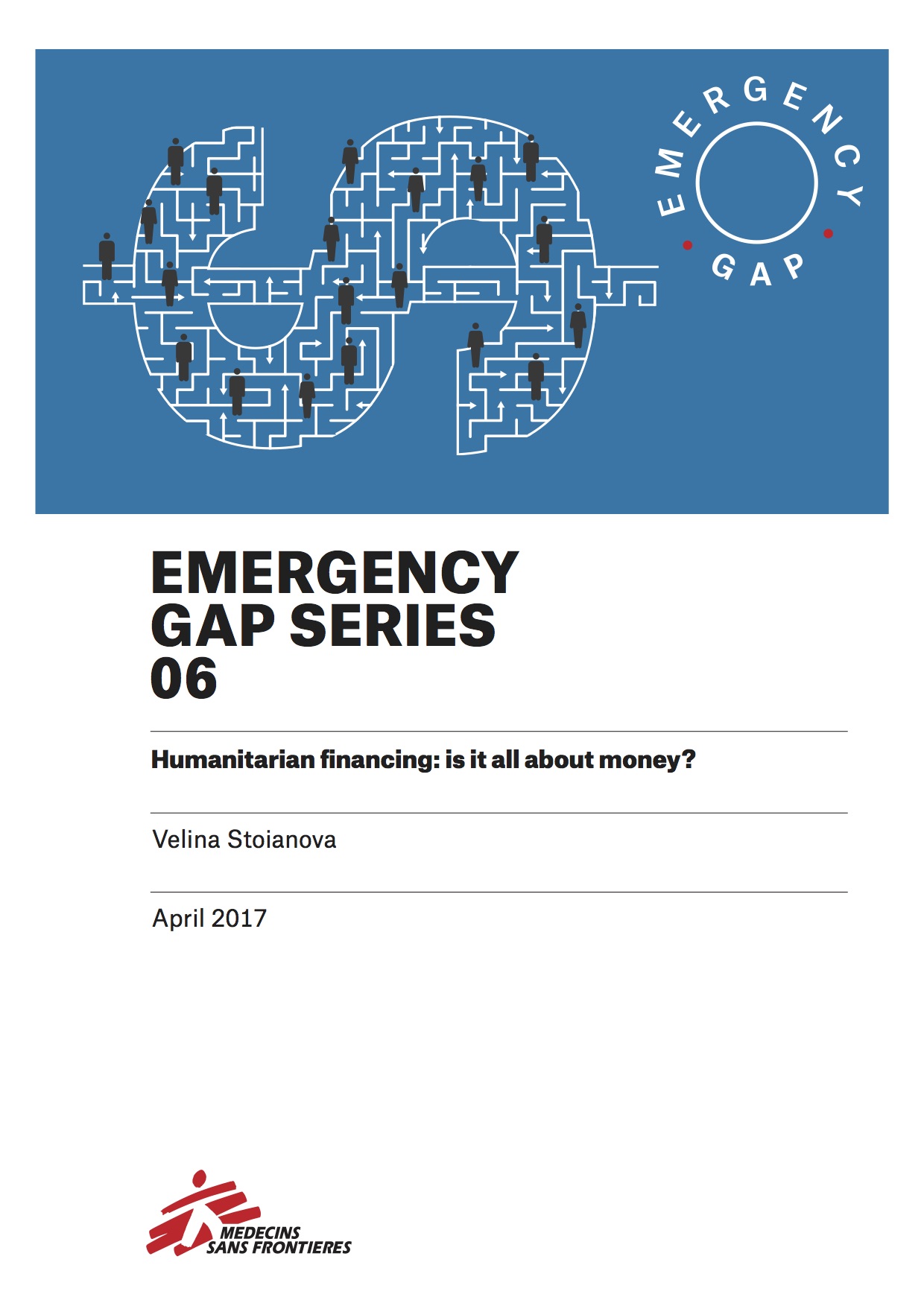
Humanitarian financing: is it all about money?
This paper expands on the structural elements of the emergency gap analysis by providing critical examination of the current setup of the humanitarian sector and its financing architecture.
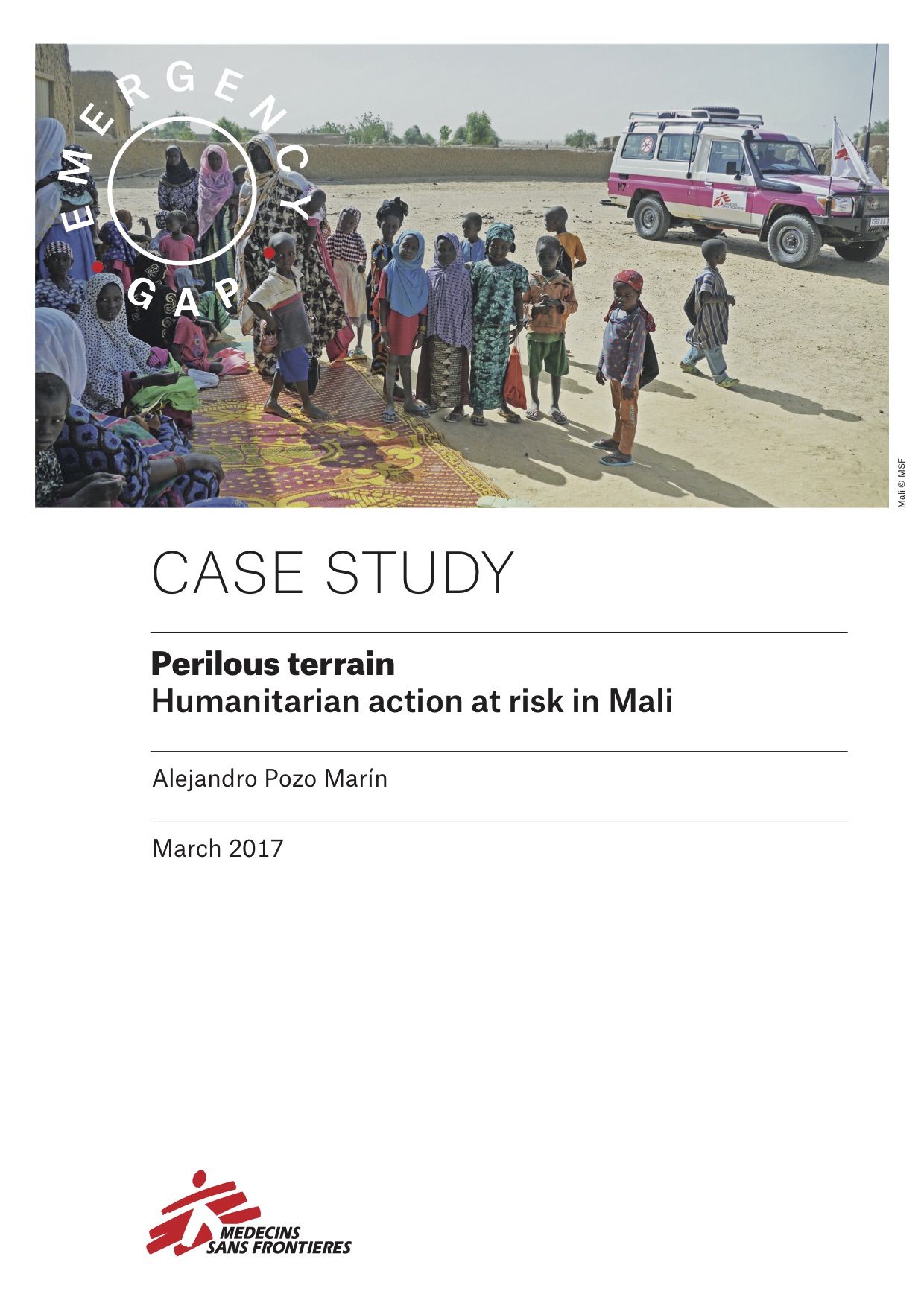
Perilous terrain: Humanitarian action at risk in Mali
This paper examines the incursion of military and political actors into the humanitarian realm in Mali, a context shaped by the rationales of “integration”, “stabilisation” and “counter-terrorism”, and argues that it is jeopardising humanitarian action in the country.

Emergency gap: Insecurity – always an insurmountable obstacle?
This paper offers a reflection on the subject of risk acceptance, and some of the underlying factors that –apart from the actual security threat– influence security decision-making in the humanitarian sector.
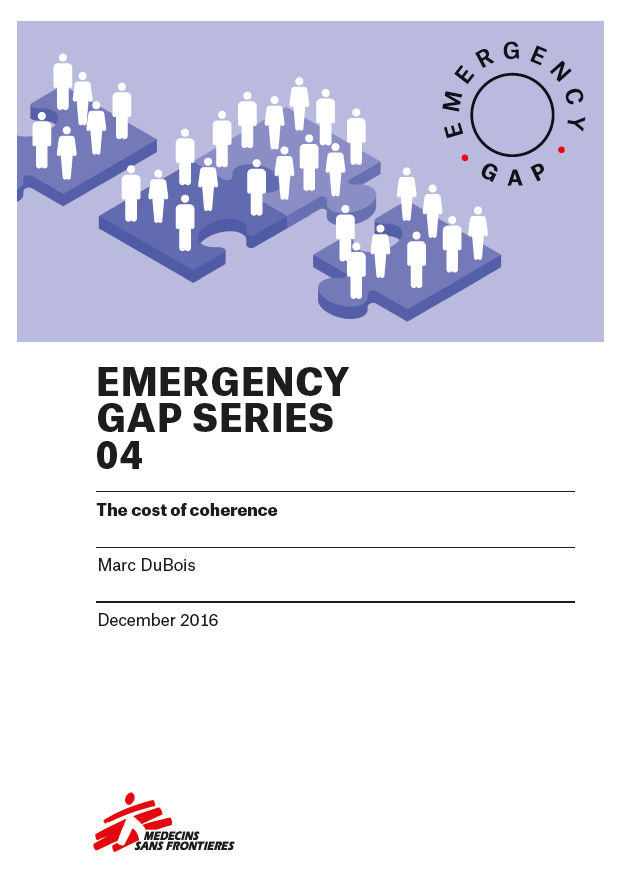
Emergency gap: The cost of coherence
The new WHS paradigm offers a vision for humanitarian action that takes coherence too far, effectively merging humanitarianism into the overarching aid project of the SDGs. The aid sector must work to strengthen complementarity across responders, while preserving the critical distinctions between humanitarian and other forms of action.
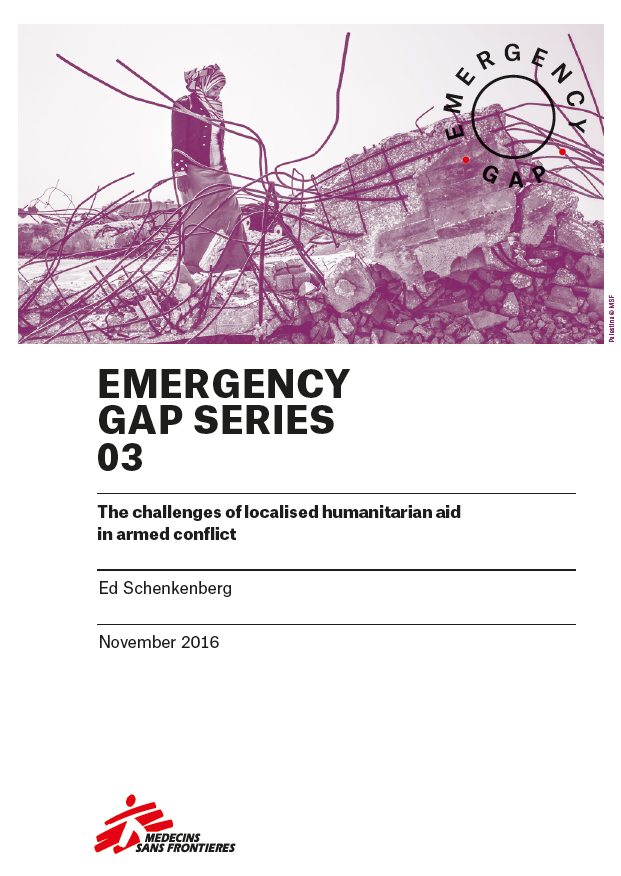
Emergency gap: The challenges of localised humanitarian aid
This paper analyses the role of national and local actors in humanitarian action based on MSF’s experiences in areas within conflict affected countries where the most urgent needs are found.

Niger, Jan 2015 – Aug 2016
This case study of the ‘humanitarian system’s’ response to a conflict driven displacement crisis in the Diffa region of Niger explores if there is an ‘Emergency Gap’. This report concludes that there has been a gap in what could reasonably be expected in terms of effective humanitarian response, and that the reasons for this gap are found in an analysis of the internal dynamics of the system as much as in any external constraints.
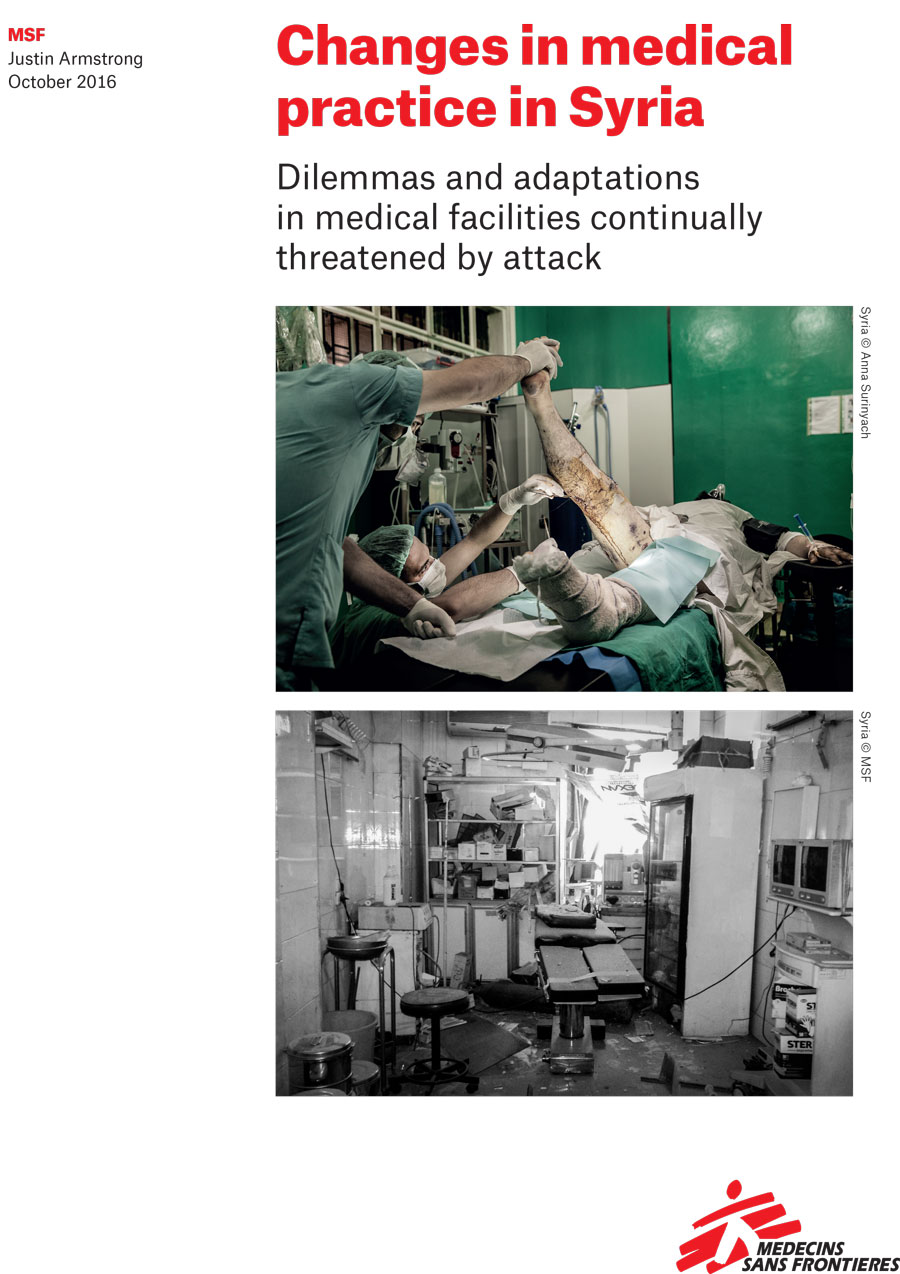
Changes in medical practice in Syria
This seeks to document how the looming threat of violence –intentional or indiscriminate– against medical facilities, vehicles, staff and patients affects the medical care that can still be provided under these circumstances. Specifically, this report aims to document the adaptations forced by the threat of attacks on medical facilities in Syria, focusing on both the direct medical adaptations as well as the operational ones.
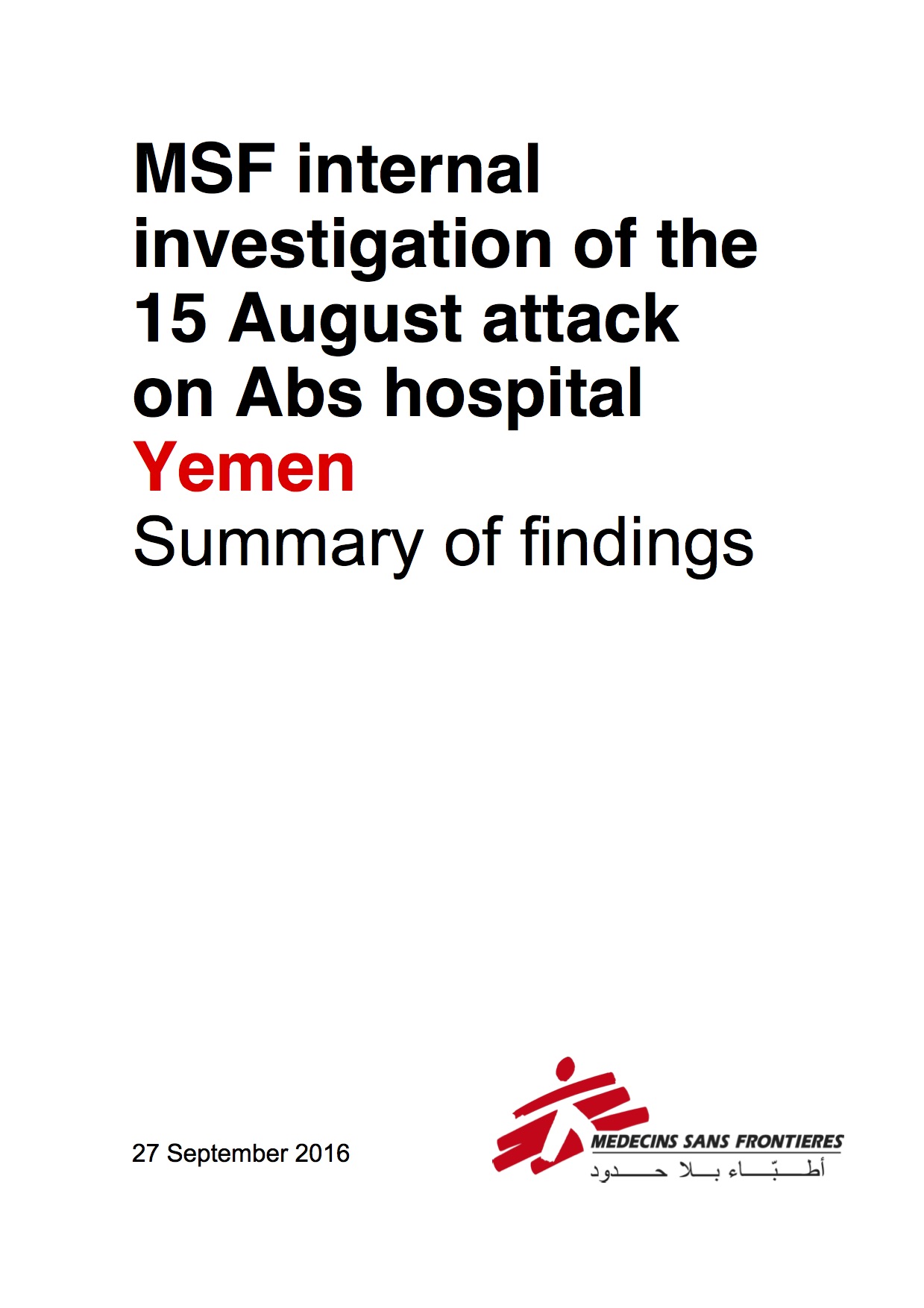
MSF internal investigation of the 15 August attack on Abs hospital
his report summarises the findings from the internal investigation of the attack on the Médecins Sans Frontières (MSF)-supported Abs rural hospital in the Hajjah governorate in Yemen.
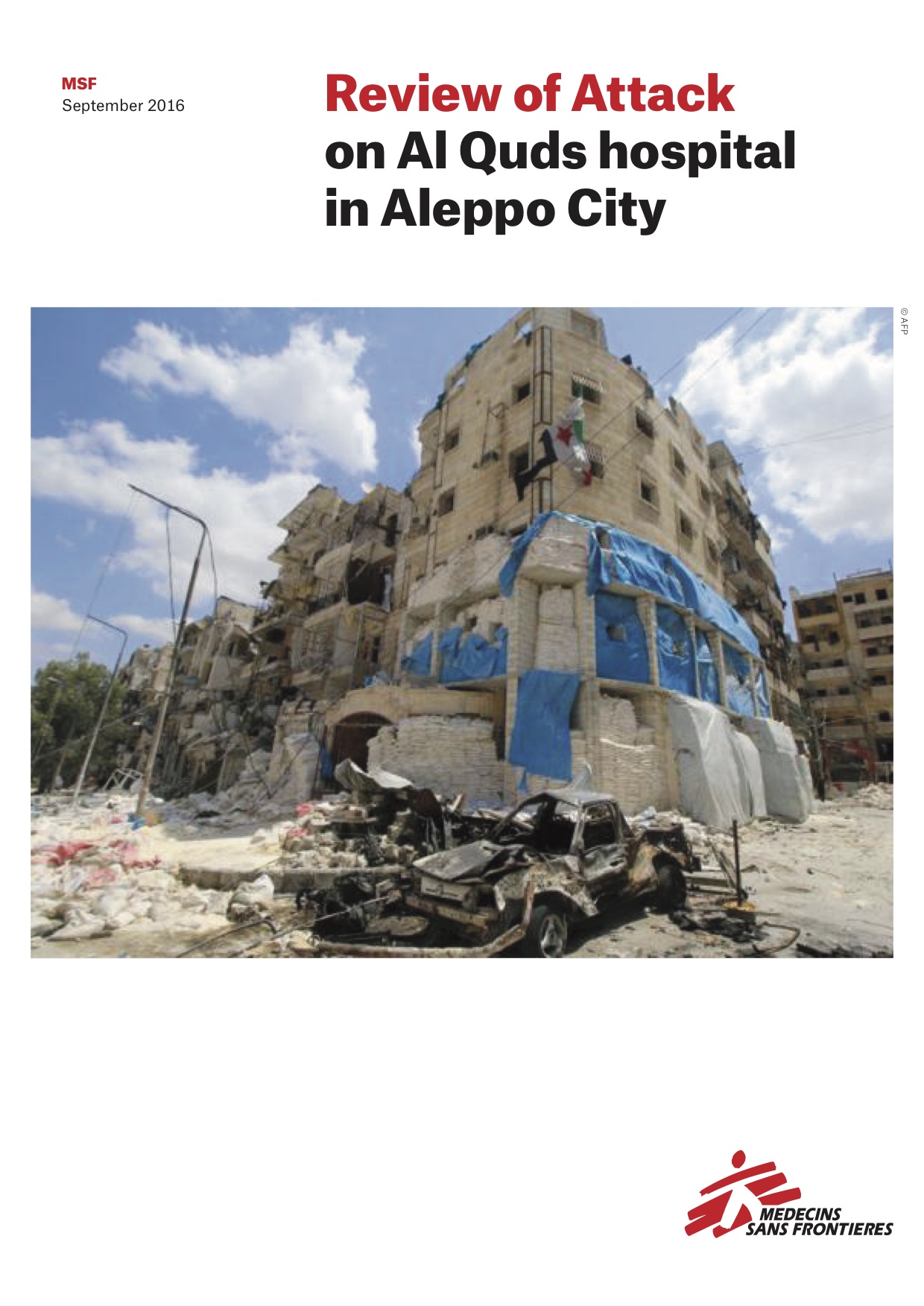
Review of Attack on Al Quds hospital in Aleppo City
Following the 27 April 2016 attack, this report aims to describe the bombardment on Basel Aslan (Al Quds) hospital and to illustrate the humanitarian consequences on the population in the wake of the long-term trend of attacks on medical facilities in East Aleppo.
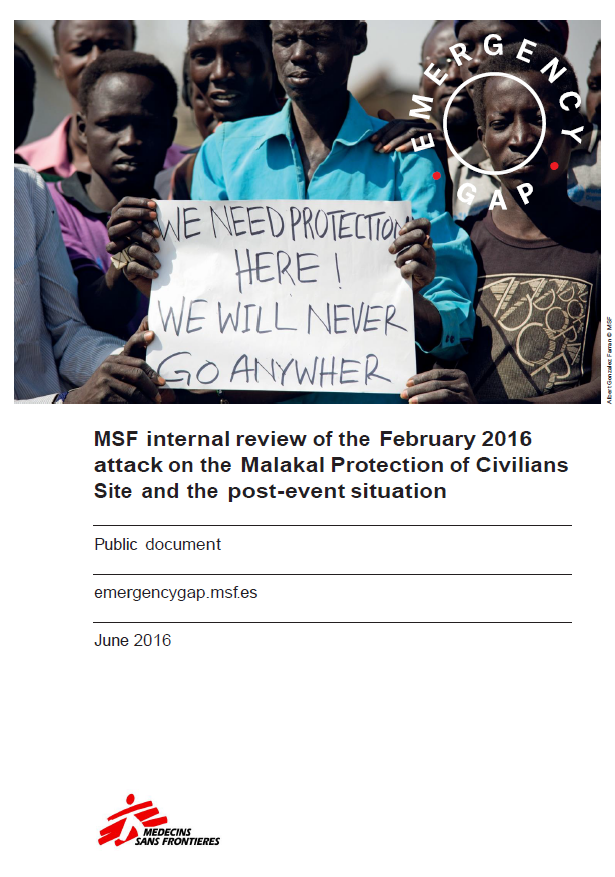
MSF internal review of the February 2016 attack on the Malakal Protection of Civilians Site and the post-event situation
This report constitutes the findings of an internal MSF review into the eruption of violence among internally displaced persons (IDPs) of different ethnic groups in a Protection of Civilians (PoC) site in Malakal, South Sudan on 17 February 2016 that left many dead (including 2 MSF staff), 108 injured and over 29,000 IDPs displaced once again.
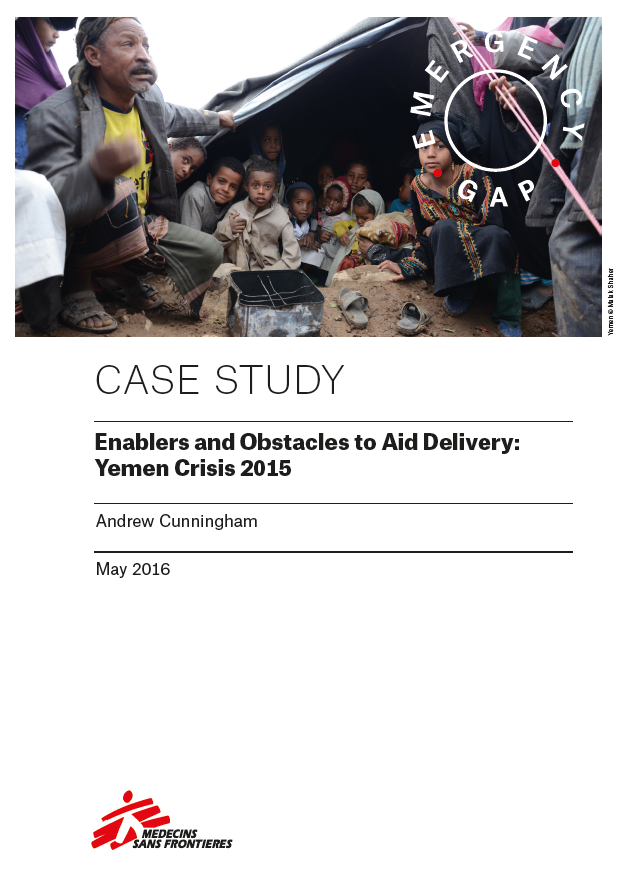
Round Table ‘Insecurity in Yemen, impossible obstacle or surmountable challenge?’
La Casa Encendida Auditorium, Madrid
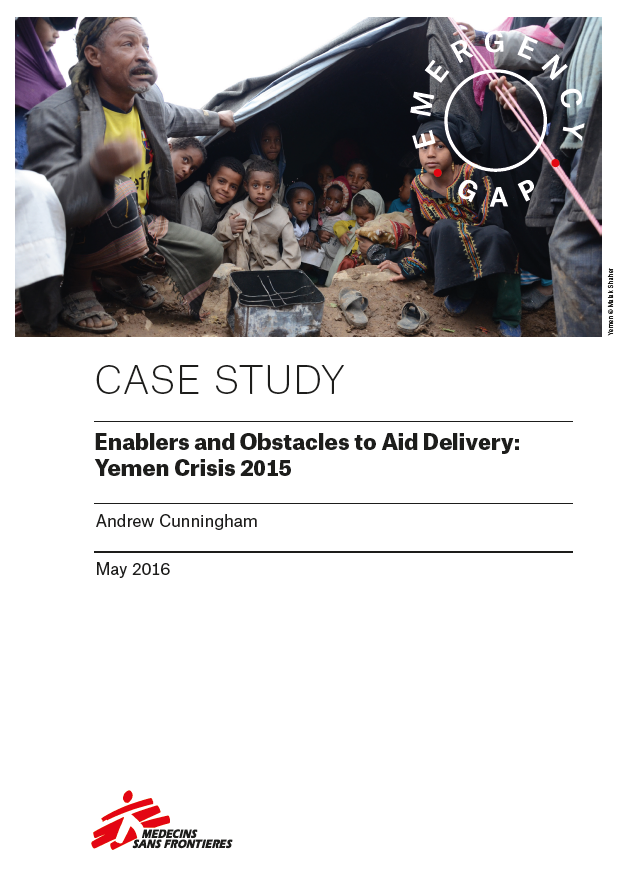
Enablers and Obstacles to Aid Delivery: Yemen Crisis 2015
The humanitarian community has failed to adequately respond to the humanitarian crisis in Yemen. This report examines how humanitarian organisations responded to the crisis in 2015 and analyses the obstacles and enablers to aid delivery. Four themes have been explored in detail: humanitarian leadership; political issues and negotiated access; security management; and resources.
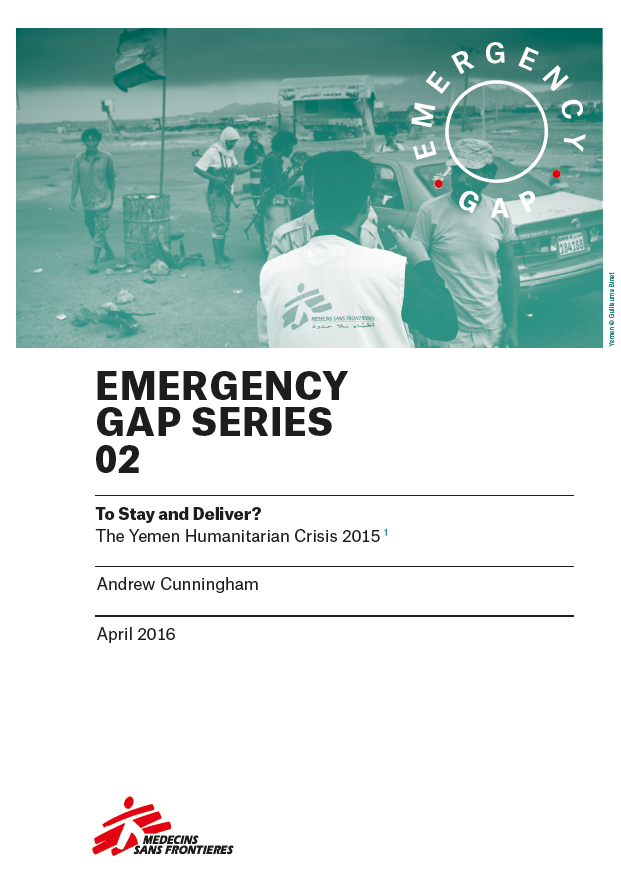
‘Stay and Deliver’ Yemen Report
The role of humanitarian aid is to assist populations in dire need, such as those suffering the consequences of conflict. But the system does not always work. In some recent humanitarian crises the humanitarian system has failed to deliver needed aid. One such failure has been the Yemen response.
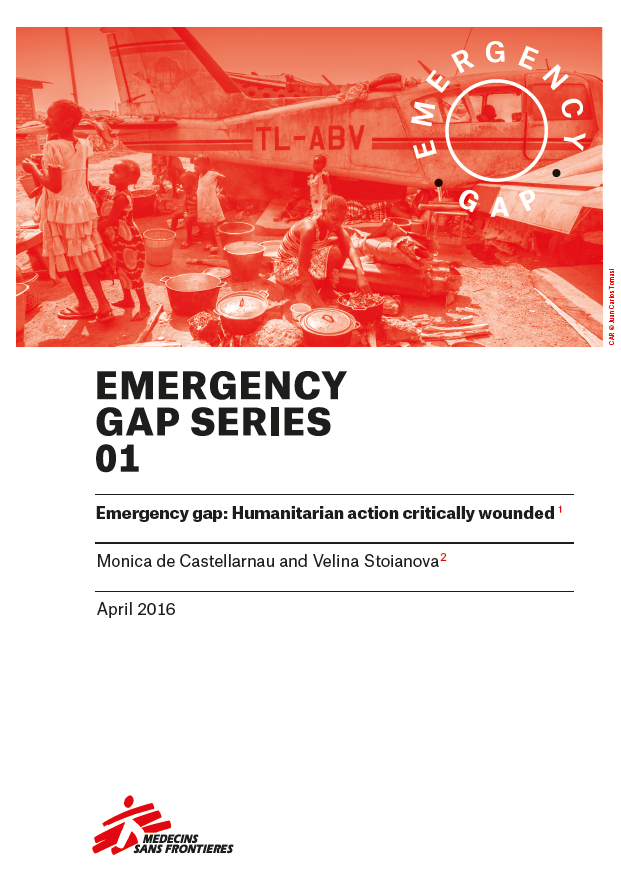
Emergency gap: Humanitarian action critically wounded
This paper offers a reflection on the subject of risk acceptance, and some of the underlying factors that –apart from the actual security threat– influence security decision-making in the humanitarian sector.
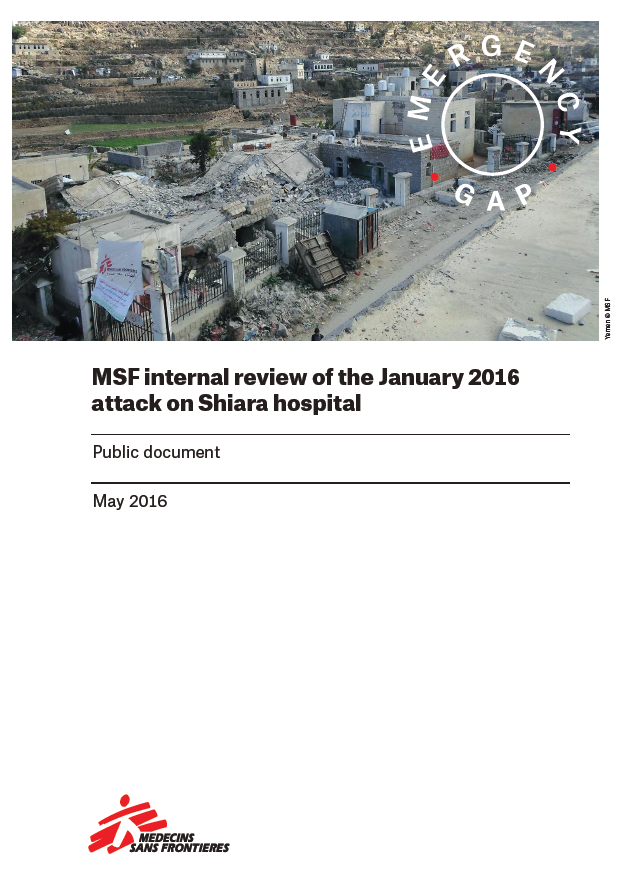
MSF internal review of the January 2016 attack on Shiara hospital
On 10 January 2016, the Médecins sans Frontières (MSF) supported Shiara hospital in Northern Yemen was hit by a projectile, causing the death of six people and resulting in another injured, all of them civilians. The MSF internal investigation into the attack was finalised on 15 March 2016, and revealed that there was no justifiable or legitimate reason behind the attack.
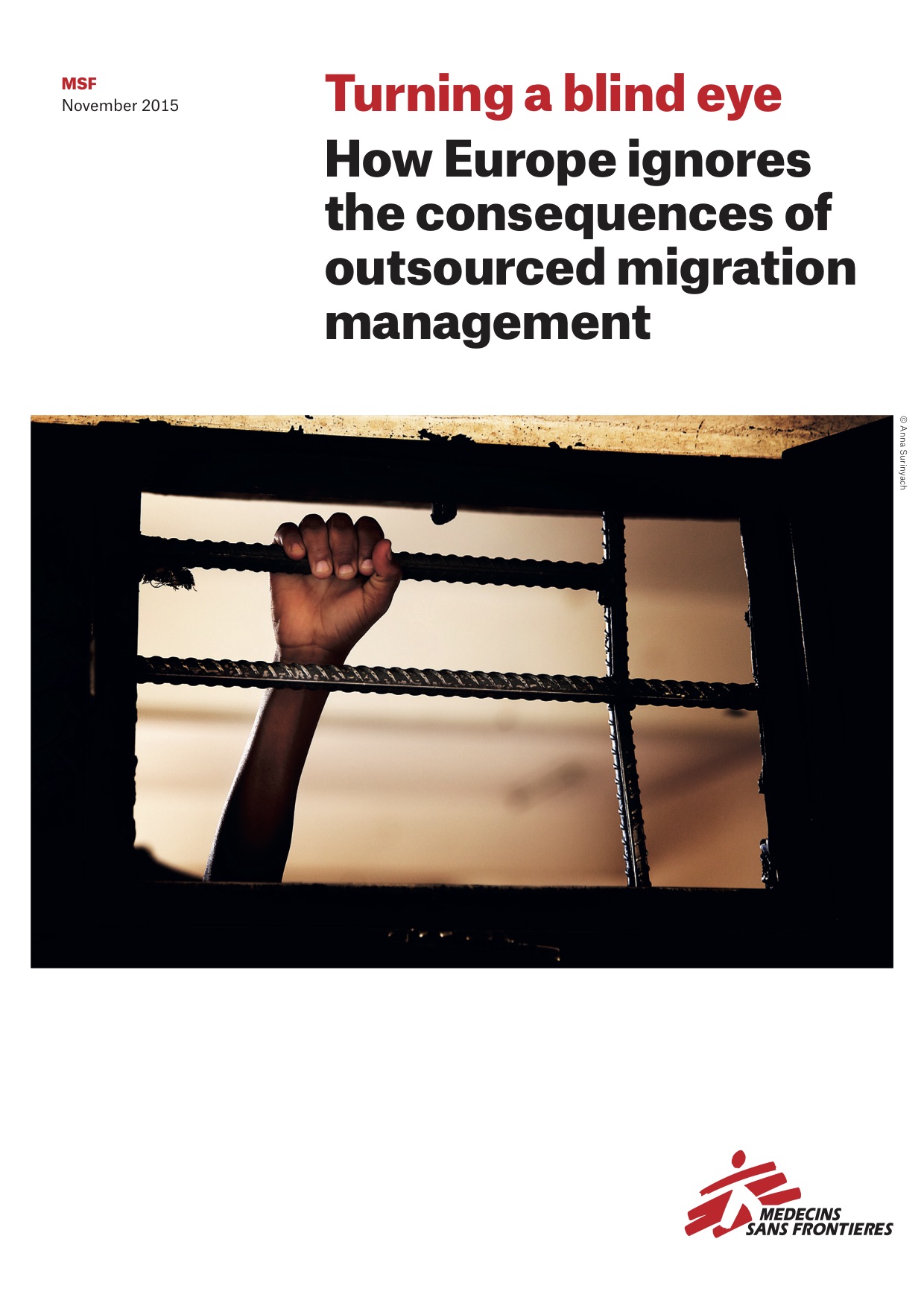
Turning a blind eye
This report seeks to draw attention to some of the humanitarian and medical consequences that have resulted from the enforcement of past migration cooperation deals. While the intended impact may be to prevent people from reaching Europe, MSF has seen unacceptable unintended impacts, which includes widespread abuse; expulsions of vulnerable groups to the desert; prolonged detention; and the criminalisation of asylum seekers, refugees and migrants, undermining existing legal frameworks for their protection.
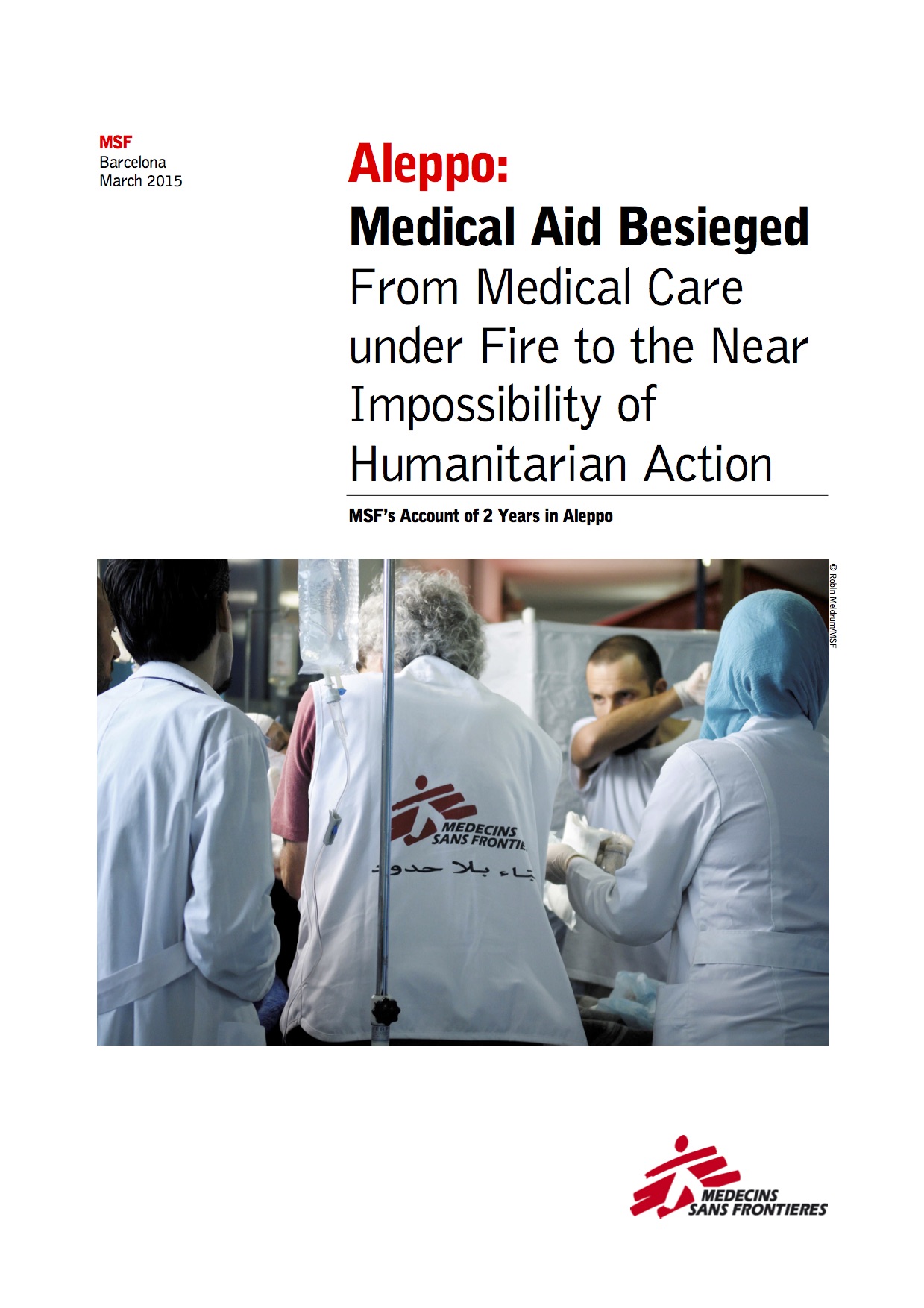
Aleppo: Medical Aid Besieged From Medical Care under Fire to the Near Impossibility of Humanitarian Action
The report analyses the themes of violence against the medical mission in Aleppo and the surrounding rural area since the beginning of MSF’s intervention in 2012. MSF’s account of two years in Aleppo is one of immense complexity and adaptation to a highly volatile and constantly changing security context.
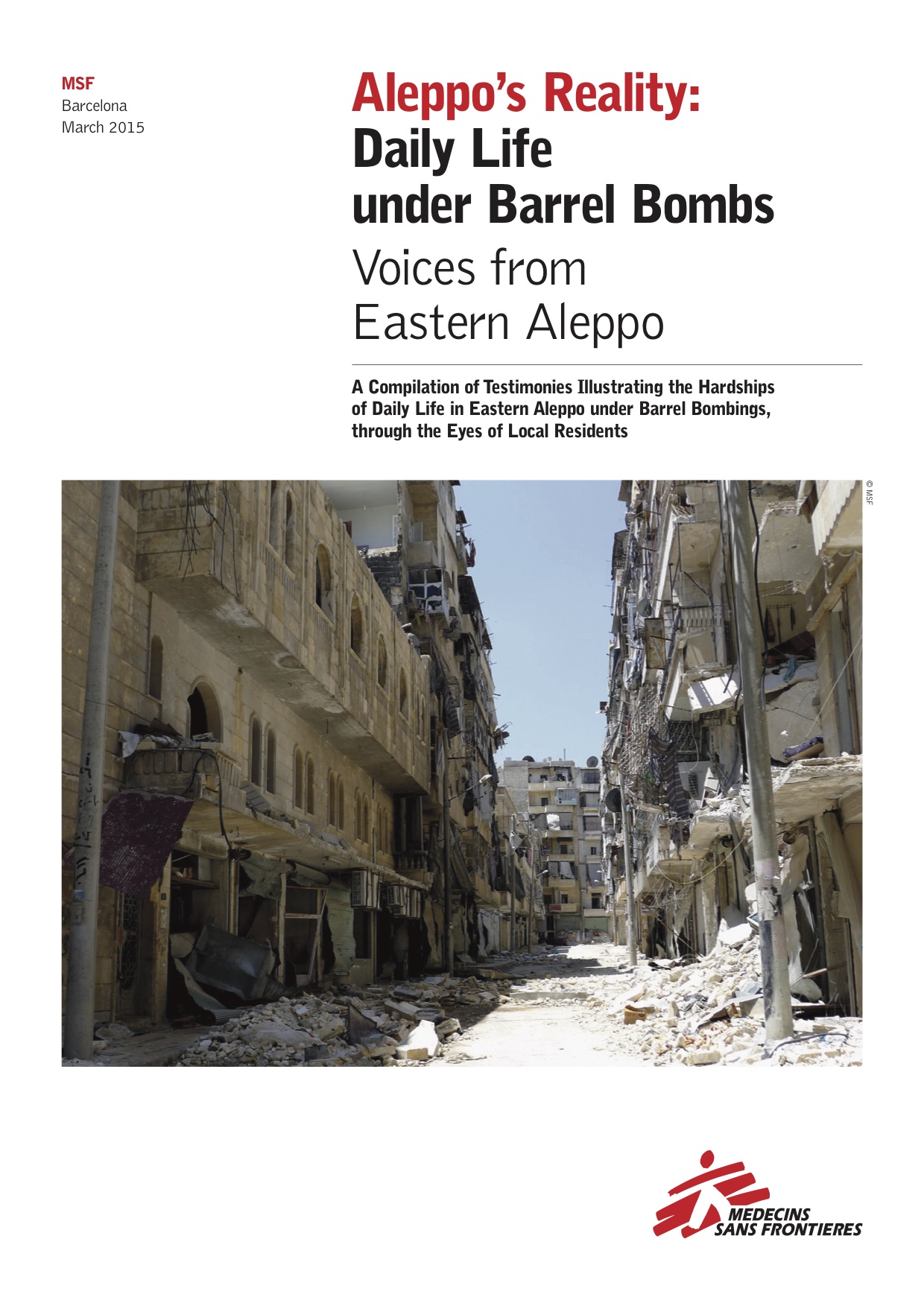
Aleppo’s Reality: Daily Life under Barrel Bombs
A Compilation of Testimonies Illustrating the Hardships of Daily Life Caused by Repeated Barrel Bombings and Other Hardships in Eastern Aleppo.
